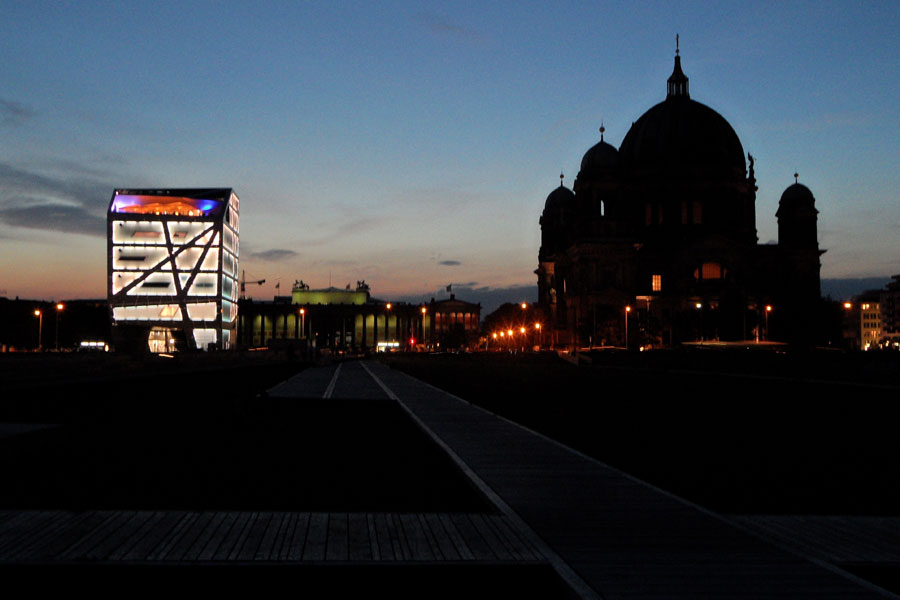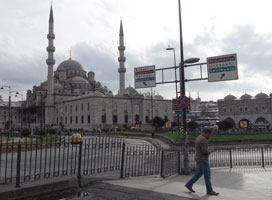Knox Stories
Michael Takeo Magruder Named First Knight Fund Distinguished Artist-in-Residence
Knox College will host its first-ever Knight Fund Distinguished Artist-in-Residence, Michael Takeo Magruder, from September 16 to September 30, 2025
Venture Boldly

Office of Communications
2 East South Street
Galesburg, IL 61401


Knox College students are examining ethnic, religious, and cultural diversity in Europe by combining classroom studies and travel in a new interdisciplinary course. The course, European Identities, received a grant from the German national organization that promotes international academic cooperation. (Photo above: A nighttime view of Germany's Berlin Cathedral and Humboldt Box. )
Modeled on Knox's Japan Term, European Identities includes classes in the fall and winter academic terms and a 17-day trip to Berlin, Germany, and Istanbul, Turkey, during the December break. European Identities is team-taught by Knox faculty members Daniel Beers, assistant professor of political science; Todd Heidt, assistant professor in modern languages-German; and Emre Sencer, assistant professor of history.
During fall term, students choose two of three classes: European Governments, taught by Beers; World War I, taught by Sencer; and Contemporary German Culture, taught by Heidt. Students who plan to travel to Germany and Turkey in December also enroll in a half-credit course designed to help them prepare for the trip. After returning, students can enroll in a European Identities winter term course where they'll produce a research project or creative project related to what they've learned in the classroom and during their trip. 
The Federal Republic of Germany through the German Academic Exchange Service (also known by its German acronym, DAAD) awarded the Knox program a grant of 9,600 Euros, the equivalent of more than $12,000, for travel costs.
"We're going to touch on a lot of issues, such as diversity, religious/ethnic difference, linguistic difference, the impact that history has on shaping cityscapes," Heidt said.
Students will gain a deeper understanding of those issues by spending time in Germany and Turkey, visiting neighborhoods and museums, and getting to know some of the people, he said.
For example, Heidt said, "We can walk though Berlin and see formerly Jewish neighborhoods that are now experiencing a re-emergency of Jewish culture after 60 years, and we can trace the movements of Turkish immigrants in Germany."
"I can talk about the history of Turks in Germany and the sorts of social, economic, cultural struggles they've experienced," Heidt added. "But what I can't do in a classroom is walk students through a neighborhood and show them how short the distance is, how close these populations really are, and yet how different and separate they are."
While traveling, Knox students also will have a chance to meet university students in Germany and Turkey and learn their perspectives on issues.
Beers said that European Identities is a good match for his teaching interests because Germany and Turkey provide real-life illustrations of international relations, democratization and development, and political institution-building.
He said, "They're fascinating places to study those processes."
Published on September 24, 2013